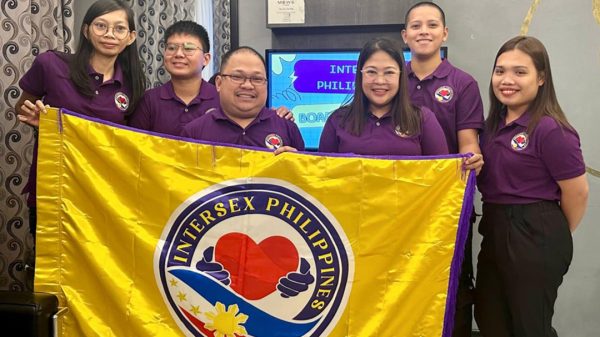By Koko Alviar
“For I am convinced that neither death, nor life, nor angels, nor rulers, nor things present, nor things to come, nor powers, nor height, nor depth, nor anything else in all creation, will be able to separate us from the love of God in Christ Jesus, our Lord.”
Romans 8:38-39
A few days ago, someone asked me how the Iglesia Filipina Independiente’s Gender Justice advocacy has been doing. I sort of lashed out. In retrospect, I am sorry for it.
Being part of the drafting team of “Our Common Humanity, Our Shared Dignity,” I’ve been through a lot kasi. You may call me the pawn in the formation (probably because I was the only unordained person in the team).
Even before the statement was approved, I’d gone back and forth in discussions a gazillion times — with subject matter experts, church leaders, human rights and healthcare advocates, LGBTIQ+ individuals and allies through the Bahaghari Conversations and informal talks. I’d also been sent to the ILGA Conference in Bangkok to get a pulse on things. To think the idea came to our small group of IFI faithful over a few bottles of alcohol.
In February 2017, I was understandably teary-eyed (and men can cry) learning from Manila that the Supreme Council of Bishops approved the statement in Bohol. Soon after, I was part of a small group that joined Pride marches and other gatherings, facilitated HIV screenings and SSOGIE orientations, and spoke to the press and karaniwang tao (or liaised convos) about what “LGBTIQ+” meant, among other things. “What the heck is + supposed to stand for, man?” (Ask me; I promise I’m already very, very, very good at it.)
Looking at the journey of over two years now, I felt alone in the advocacy a great many times — and it has been a recurring feeling. I felt alone Holy Week 2017 and Holy Week 2018 when I fought against a black cloth on the altar displaying a clobber verse (a verse that people have used to harm, even kill, LGBTIQ+ people). I felt alone and stupefied in December 2017 when, in good faith, I asked a transgender woman-advocate how church people may better appreciate the transgender identity, and she said, pokerface and all: “You shouldn’t have written about us.” (So I should have worked on an LGBIQ+ statement, prolly.)
But I haven’t been alone.
Because of a heterosexual male clergyman, the black cloth was finally removed, mid-Holy Week this year. In that gathering in Cebu City where I was shot down, I was with an ally from IFI and another LGBTIQ+ youth officer from the Diocese of Cebu (migrant from Mindanao, usual victim of contractualization and underpay, discriminated in the application process because he sported long hair) who hadn’t been to any such event and was thrilled to attend. Because of many women and LGBTIQ+ people in the Church, the advocacy has lived beyond myself. Because of an embracing bloc of young people in IFI, the Youth of the Iglesia Filipina Independiente has come out with progressive themes and events that embrace diversity — and worked on crucial partnerships with society and religious groups. (“Kung may nakakapansin po na makulay ang mga logo ng YIFI sa mga nakaraang aktibidad, ito ay dahil sinusubukan nitong manguna sa usapin ng pagkakasari-sari at sa pag-ibig ng Diyos na sumasaklaw naman sa lahat.”)
Yesterday, I was in Rizal-Pampanga discussing the LGBTIQ+ statement, not because of my own doing but because the diocesan youth officers and a bigger council of ordained and lay people allowed the input. Romblon-Mindoro accepted HIV screening for the first time in history. In Visayas and Mindanao, outside Mega Manila, up North and down South, people can now confidently discuss human sexuality and sexual health. Clergy people are taking on “revolutionary readings” of the Bible, revisiting feminist theologies and asking questions about the queer perspective. I’d like to believe the 20th year of woman priesthood in the IFI was better appreciated because of the rekindling brought about by the statement. A transgender woman took the seminary entrance exam to challenge the binaries in theological education.
The NCCP general secretary said recently that the IFI “went further” by apologizing for its maltreatment of sexual minorities. The Gender Desk has no money but other developmental projects everywhere encourage me to send proposals to get it running — and individuals have kept the #SimbahangMalaya advocacy alive, despite the institutional hurdle. Leaders of the Kalipunan ng Kristiyanong Kabataan sa Pilipinas appreciate why I prefer “chairperson” over “chairman.” There’s also no forgetting the voices we merely amplified; the voices I’ve never met and probably will not meet, but who at least smiled or cried or sighed a sigh of relief because of the statement. It is thus more than me. It’s people.
In fact, on a broader note, many young people are “coming out” in favor of welcoming churches — churches that the least, last and lost can approach for comfort; that go down to the people to affirm their worth even as powers and principalities make them feel insignificant; that amplify the narratives of pain and suffering from the ground (even outside the Christian or mainstream fold) as necessary Christian work.
The statement for #AEYA2018Manado noted that Asian ecumenical youth “recognize that we as a church have sinned against women and LGBTIQ+ individuals. They have been excluded, discriminated against and, in some cases, subjected to violence from the church. We recognize that there are a variety of views on gender roles and sexual orientations, and therefore we must respect one another’s views. However, we are given the ministry of reconciliation (2 Cor 5:14-18). As God reconciled us through Jesus, we also seek to be reconciled with those the church has injured.” It came with an urge to the Christian Conference of Asia to design a SSOGIE program.
(I’ll forever remember explaining human sexuality very smoothly [and with gusto] to an Indian participant in just over a minute.)
The buzz for gender justice is growing in the Roman Catholic fold, and I just joined a meeting hours ago confirming this. More and more Philippine Churches are talking about human sexuality. More are engaged in the dialogue on the basis of human dignity and human rights; the fullness of life.
Outside the topic of human sexuality, we are finally talking about mental health issues outside the “Jesus is enough” discourse. We are talking about poverty and globalization; immersion and solidarity work; the changing image of the family; the church in digitization and technology; persons with disabilities (or, different abilities); indigenous knowledge and spirituality; peace outside “the absence of war.”
I’ve heard biblico-theological reflections in many places proposing that our concept of “individuals outside the self” (I cannot articulate it better, sorry) should change from “the other” to “the neighbor.”
Of course, the level of appreciation varies; but the discussions are beginning everywhere. As we await the groundswell, our advocacies will require sacrifice. Naturally, where hopes run high, so must passion (and it could mean pain and suffering, as much as it means dedication). Where change is resisted, fervor must be stronger.
Advocates need to be reminded that they are not alone in their crusade. Victims of injustice, peoples in unpeace, the disheartened and downtrodden among us deserve a Church that tells them: “Welcome, welcome. Come into this sacred, safe space.”






























































